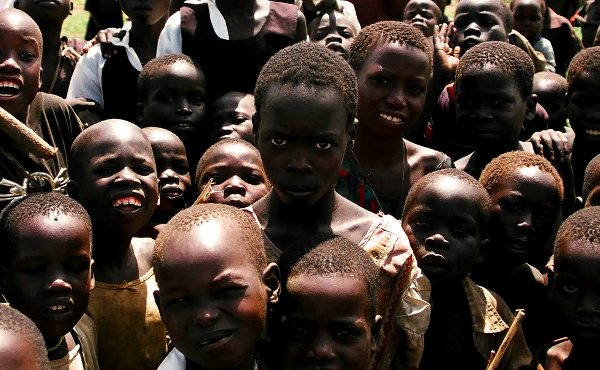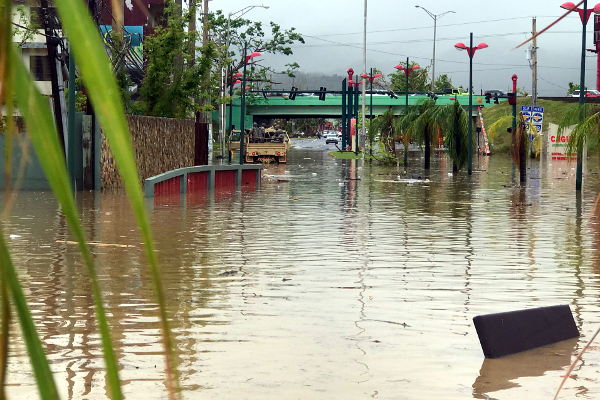By: Josh Lam – September 25th 2012
In Northern Uganda, after 28 years of civil strife, the struggle for justice continues in a situation that is as complicated as it is tragic. There has been media attention on Joseph Kony, the leader of the Lords’ Resistance Army (LRA), and his use, abuse, and recruitment of child soldiers. In particular, there was considerable interest generated by the incredibly successful social media campaign “Stop Kony 2012”, run by the charitable organization Invisible Children. The campaign highlighted the power of social media as an advocacy tool, but was severely criticized, partly because of the limited perspectives of the situation in Northern Uganda.
The northern Ugandan conflict is incredibly complex, as are the consequences of that conflict, and run deeper than just a ‘rebel army using child soldiers’. This was highlighted at a consultative forum organized by the Foundation for Human Rights Initiative and the Kenyan Section of the International Commission of Jurists. The forum, which has held from the 27th to the 30th August, 2012, in Gulu, Uganda, brought together various stakeholders from the area. The key topic was the Ugandan Amnesty Law, which was enacted in 2001 but had lapsed in May 2012.
The amnesty law, according to government officials, was created to directly assist peace negotiations between the Ugandan Government and the LRA. Administered by the Ugandan Amnesty Commission, approximately 26,000 rebel combatants were granted a blanket amnesty to leave the bush, without fear of prosecution, with the end-goal of resettlement and reintegration. Despite the fact that it contravenes international law, it was a major step forward in the peace process and seems to have led to a considerable decrease in the hostilities in the north over the last decade.
Unfortunately, it has not been the final solution for the conflict. Of the 26,000 people granted amnesty, only around 4,000 of them have been successfully resettled. There is major stigmatization of ‘ex-combatants’ who attempt to resettle in their home communities. It is especially hard for women that attempt to return home. Often, they are chased away. Where a woman, or more often a girl, has returned from the bush with a baby, families may accept the girl, but refuse to let the baby into their houses. Even those that successfully return to their communities face difficulties in finding employment, or going back to school.
Awilli Janet was abducted by the LRA when she was 7 years old. She spent 5 years in the bush, before escaping. She was beaten, abused, tortured, and witnessed killings and other atrocities. One of her hands was mutilated beyond repair. She is now 19 years-old, and recounts these horrors without emotion. But, since returning from the bush as an ‘ex-combatant’, despite never holding a weapon or participating in any violence, she has faced stigma and lack of any meaningful support. She supports herself by working as a house girl. When she is asked what she wants, she responds, “I want to go to school”, and breaks down in tears. This is a recurring story, and one that clearly highlights some of the challenges of the Amnesty Law in Uganda.
However, that is only one aspect of the story. Often, little attention is given to the victims of the conflict. The focus on child soldiers often shifts focus from the Acholi communities and individuals that have suffered as a result of this conflict. The victims have suffered terrible human rights violations. From the reports given at the Consultative Forum, there are allegations of violations perpetuated by both the LRA and the Ugandan Government forces. This puts communities in a difficult situation: they see Joseph Kony and the LRA as villains who have continually harmed them, their families, and their children. However, at the same time, there is a distinct lack of trust in the Ugandan Government, which has repeatedly failed to protect them, and worse, has also harmed them, their families, and their children. For example, participants in the forum strongly advocated for the prosecution of those most responsible for the ongoing conflict and crimes. However, there is a general sense that the communities are not supportive of the International Criminal Court in bringing Kony and other LRA members to justice. While this might seem contradictory, it is more likely a sign of the deep-seated distrust of the government that the communities would not support prosecution at the ICC, as it is viewed as being an extension of the Ugandan government’s influence.
The victims are caught in the middle of this conflict, and yet remain largely outside of the ongoing peace process. One participant commented that it is difficult for a victim to see how the government is working to resettle and reintegrate ex-rebels, when nothing has been done to repair the harms suffered by the victims, or to acknowledge the needs and interests of victims. There seems to be a lack of space for justice and reconciliation for the victims.
As a response to this, there was a significant call by the forum participants for ‘home-grown’ solutions to the conflict in Northern Uganda. In some cases, efforts such as the Mato Oput ceremony (literally “to drink from the tree”), a «traditionally-based ritual processes to be used for war-related justice, reconciliation, and reintegration» and other justice processes used by the Acholi communities seem to have potential to positively impact both victims and ex-rebels looking to reintegrate into communities.
The situation in Northern Uganda remains complicated and complex. With proper cooperation and planning there is hope for finding sustainable solutions for the communities, victims, and ex-rebels. However, without the assistance of all the key players in this ongoing saga, and the political will to provide the necessary resources, there will be limited progress towards justice, reconciliation, and peace.
Si encuentras un error, selecciónalo y presiona Shift + Enter o Haz clic aquí. para informarnos.


